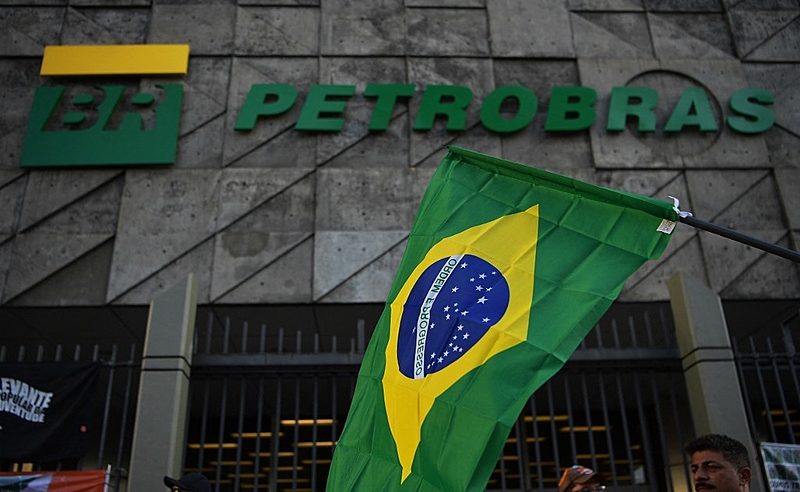By Sérgio Lima
Petrobras admitted a possible change in the dividend distribution policy in a document sent to the SEC, the US Securities and Exchange Commission, on Wednesday (29 March).
According to the state-owned company, changes in the composition of its Board of Directors and Executive Board may result in “changes or termination” of the dividend policy.
It also says that the collegiate may change or terminate the policy at anytime.

Petrobras also says that there is a possibility that the changes in the policy could lead to the “payment of less or no dividend in the future.”
In 2022, the state-owned company paid R$215.8 billion in dividends to shareholders -the highest amount in history.
The company adopts a remuneration policy establishing the payment of 60% of the difference between operating cash flow and investments if the gross debt is less than US$65 billion.
Last year, the distribution exceeded this level.
“Payment of dividends above the legal and statutory minimum in prior periods is not a guarantee of future payments and does not serve as a benchmark,” it wrote.
Known as “Form 20-F”, the document is mandatory for foreign companies listed in the United States.
In it, companies provide financial and operational information and assess the risks they are subject to.
In the “risks” segment, Petrobras evaluates the possibility of changes in the dividend distribution policy.
This topic does not appear in the previous edition of the form from 2022.
President Luiz Inácio Lula da Silva (PT) is critical of the dividend distribution policy adopted by the government of his predecessor, former president Jair Bolsonaro (PL).
Lula’s administration states that Petrobras should direct its cash flow to investments.
Poder360 showed that the state-owned company was one of the oil companies that invested the least in 2022.
SALE OF REFINERIES
In the document, Petrobras also admits the possibility of reviewing the term of cessation of conduct signed with the Cade (Administrative Council for Economic Defense) in 2019.
The agreement obliges the state-owned company to sell eight refineries, representing approximately 50% of its refining capacity.
“Our Board of Directors or managers may seek to revise the term of commitment with CADE, changing the obligations of the current agreement,” the company wrote.
TUG-OF-WAR WITH THE GOVERNMENT
Petrobras referred to the request from the Ministry of Mines and Energy for the state company to suspend the sale of assets for 90 days.
It evaluates the ongoing processes, the terms of commitment already assumed, and “the consequences of any suspension or cancellation, which could significantly impact us.”
On Wednesday (29 March), the company’s Board of Directors again analyzed the ministry’s request.
The collegiate understood that the suspension requires revising the company’s strategic plan for 2023.
It said it would study the government’s request if the new board proposes a project revision.
“It is worth noting that this review should not include divestments already in the phase of signing and closing contracts to fully comply with the rights and obligations already assumed by the Company,” Petrobras wrote in a statement.
According to the state-owned company, some sale processes have dates for the four quarters of 2023.
The Ministry of Mines and Energy sent, on Wednesday (29 March), a letter to Petrobras requesting that the new board of directors of the state company re-examine the suspension of the sale of assets.
The government had requested the suspension of the sales, for 90 days, on 1 March.
On 17 March, Petrobras responded that its board had conducted preliminary studies and found no reason to suspend the contracts signed.
Last week, the Administrative Council elected the new executive board of the state-owned company, with a mandate until 13 April 2025.
Because of the change, the government requested a new analysis of the request.
The folder defends the suspension of the processes due to the “reevaluation of the National Energy Policy currently underway” and the new composition of the CNPE (National Energy Policy Council).
With information from Poder360

